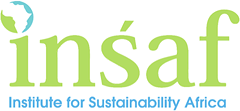
The South African Institute of Chartered Accountants (SAICA) recently hosted IFAC’s Professional Accountants in Business (PAIB) Advisory Group meeting in Cape Town. To kick off the discussions, SAICA’s Board Chairman, Vincent Motholo, presented to the group, sharing insights into his own professional journey, including his current role as chief financial officer (CFO) at the University of Cape Town (UCT). He also highlighted priorities for the accountancy profession in South Africa and emphasised what it means to be a difference maker in the profession.
About the University of Cape Town (UCT)
Top university in South Africa, and in Africa
Established in 1829, it is the oldest university in South Africa
Approximately 30 000 students and 4 000 employees
Revenue exceeding ZAR 7 billion and total assets exceeding ZAR 15 billion, including investments exceeding ZAR 8 billion.
Applicable law – Higher Education Act
Reporting framework – IFRS
The Strategic Contribution of Finance
UCT’s ambition, building on its status as the top university in Africa, is to create a global university that is uncompromising in its transformative intent, deeply rooted in academic excellence and that strives for social, environmental and financial sustainability. This is articulated in its Vision 2030, underpinned by three pillars: sustainability, transformation, and excellence.
CFO role and department
Vincent emphasised how instrumental the finance function is in contributing to UCT’s strategy, given its connection to all areas of the organization. Reporting directly to the vice-chancellor of the university, in his role as CFO, Vincent oversees a department of approximately 150 staff, with 8 direct reports covering finance systems and policies, treasury, management accounting, procurement and payment, financial accounting, research finance, commercial development, and risk compliance.
CFO role and department
The finance team’s objectives directly align with UCT’s strategy with four key areas of focus.
CFO role and department
Divestment from Fossil Fuels
In March 2022, the University of Cape Town (UCT) Council announced that it had agreed in principle to the divestment from fossil fuels. The UCT Council stated that the in-principle decision will be executed in a responsible and transitionary approach:
Through the immediate divestment from internationally exposed fossil fuel investments and immediate investment in renewable energy and/or a green economy instead of new investments in fossil fuels, and
In the local economy, UCT will work towards achieving a goal of being net positive by 2030.
Future Outlook
Achieving financial sustainability
With the sector facing reduced government funding, identifying alternative revenue streams is crucial to maintaining financial sustainability.
One of the eight teams under the CFO’s leadership is commercial development. This team is responsible for identifying and overseeing commercial opportunities for UCT. To date these include hotels, a conferencing center, rental income from movie shoots, an online high school, and a drive to attract more foreign students.
Transforming workflows with automation
Optimising the use of automation is a priority to improve efficiency of routine finance tasks and allow the finance function to focus on more meaningful value-adding activities.
For examples of AI use cases in finance, see Harnessing Innovation: Exploring the Responsible Use of AI in Finance and Accounting | IFAC.
Results-orientated productivity focused on delivering outcomes quickly
Emphasising efficiency and work-life balance, shifting from a focus on traditional 9-to-5 office hours to evaluating outputs and outcomes.
Transition from chief financial officer to chief value officer
Partnering with the organisation as a strategic partner, considering the broader risk landscape, and engaging with the faculties to understand priorities and being an enabler not a blocker.
Producing more meaningful reporting, shifting the annual report to an integrated report.
Changing team compositions and focusing on people
Composition of staff to include staff from other disciplines, including behavioral scientists, data scientists, sustainability experts, industrial psychologists.
Prioritizing mental wellness.
Emphasis on the importance of diversity in leadership and the need for effective capacity in leaders.
“Operational sustainability is not possible without financial sustainability.”
Partner With Us
The Institute for Sustainability Africa (INŚAF) is an independent multi-disciplinary think tank and research institute founded in Zimbabwe in 2010 with the Vision to advance sustainability initiatives for Africa.




